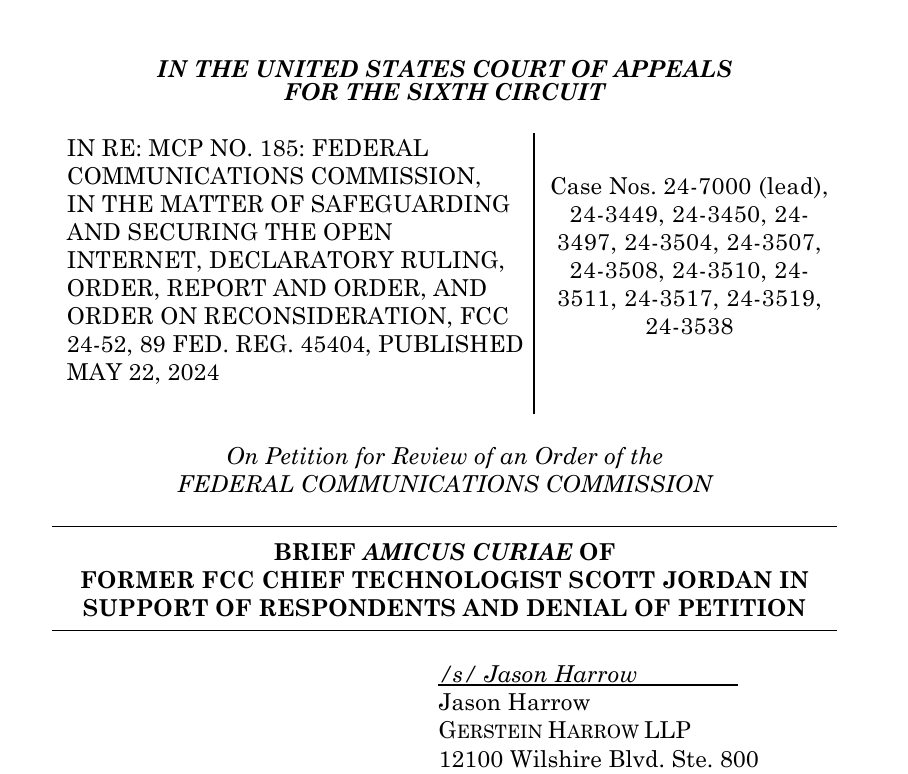Modern Broadband is a Telecom Service, Says Former FCC Technology Head
The agency made similar arguments in its brief last week.
Jake Neenan

WASHINGTON, Sept. 18, 2024 – Modern broadband should be considered a telecommunications service subject to utility-style regulation, a former Federal Communications Commission staffer told federal judges Tuesday.

“Broadband Internet access service is fundamentally different than both dial-up Internet access service and the cable modem service that predominated in the first decade of the 2000s,” wrote Scott Jordan, the FCC’s chief technology officer from 2014-2016, in an amicus brief to the U.S. Court of Appeals for the Sixth Circuit..
The agency is trying to fend off a court challenge to its net neutrality rules, which reclassify broadband as a Title II telecom service under the Communications Act, rather than a Title I information service. Title II services are subject to more stringent FCC regulatory oversight.
Broadband trade groups trying to strike down the rules had an early success invoking the Supreme Court’s major questions rule. Sixth Circuit judges put the rules on hold last month, writing that providers were likely to win the case with that argument. Oral arguments are scheduled for October 31.
But the ISPs also argued that classifying broadband as a telecom service, defined as providing transmission without changing the form or content of information, would be incorrect. They told judges that internet service is “the offering of a capability” to acquire, interact with, and publish information online –all components of the less regulated information service classification.
Providers noted that aside from the two years of net neutrality under the Obama FCC, consumer broadband has been considered an information service.
For Jordan, and FCC lawyers who have made similar arguments, that classification hinged on early dial-up and cable broadband service being bundled with ISP-provided email, webpage hosting, and other products that don’t come with modern broadband plans.
Now, he argued, “the capabilities listed in the definition of information service are not offered by broadband internet access service. They are offered by applications (information services) that utilize broadband Internet access service to transmit and receive data.”











Member discussion